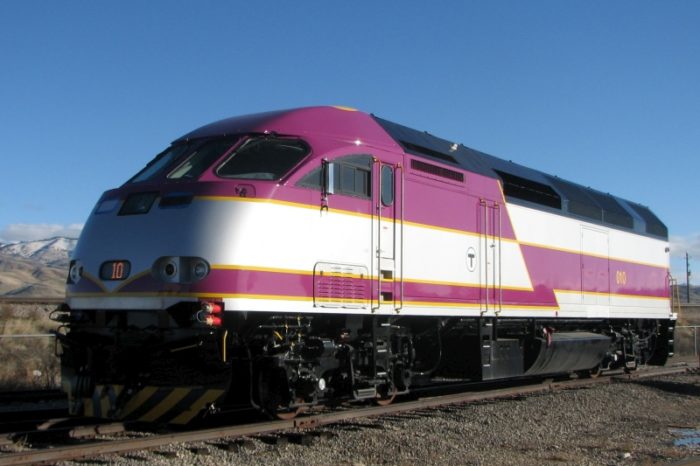Fed Up With Faulty Fare Collection: Part II
Fed Up With Faulty Fare Collection
Part II: New Ways to Collect Fares
The problem
Recently, we outlined the commuter rail’s fare collection woes. Oftentimes, conductors don’t collect fares or ask to see passes. For those with a monthly pass costing between $75 and $362, seeing others ride for free is troubling – to say the least.
The issue is that Keolis, the commuter rail operator, lacks any meaningful incentive to collect fares.
Since the company is penalized at only $500 per instance of improper fare collection, how can Keolis take the fines seriously enough to and evaluate and improve their policies? Meanwhile, the MBTA doesn’t have any way of knowing just how much money they are losing on “free” rides.
The T’s current current commuter rail fare collection methods lag behind the times. A conductor makes his or her way down the aisle scanning monthly passes, hole-punching one-way tickets and ten-ride passes, collecting cash and providing receipts to cash payers. The cash payers slow conductors down.
The system is based partly on seat ticketing and partly on facial recognition – the conductor gets to know the regulars. If a train is too crowded, the conductor cannot always get to every passenger on before riders begin to unload.
Is there a better way to collect fares?
There sure is.
California’s honor system
One of California’s commuter rail services, Caltrain, has much stiffer penalties. Caltrain’s system works differently than the MBTA’s and other east coast transit authorities; it operates on a proof-of-payment basis, essentially an honor system.
The option of buying a ticket onboard is not allowed. Everyone is expected to have their validated tickets on-board the train. If they do not have a ticket during a random check, Caltrain conductors can issue a citation for fare evasion of up to $250 plus court fees. If issued a fare evasion citation, the person is also issued a court date in which he or she is required to show up and defend themselves if they wish to contest the fine, according to a Caltrain operator. In 2012, Caltrain’s fare evasion rate was one-tenth of a percent. With the possibility of stiff fines, everybody buys a ticket, and the problem of having to manually check every passenger is eliminated.
Caltrain’s fare purchasing options also include an automated process that relies on their smartcard, the Clipper Card, to store fares for the train. A machine calculates the fare of traveling between two stations and deducts that fare from the card. If asked to present their ticket to a conductor aboard the train, you simply give your Clipper Card to the conductor, who uses a handheld device to scan and confirm that the fare is valid. The Clipper Card is much like the MBTA’s Charlie Card, since it also works for bus and subway routes. By streamlining and modernizing the process, commuters have an incentive to make sure they have their tickets on board in case they are randomly checked.
Caltrain is not the only commuter service that operates like this. Others, like Sound Transit, which serves Washington State, employs a smartcard and proof-of-payment system that imposes a hefty fine on any passenger caught without a ticket.
This is an idea that makes a whole lot of sense – the MBTA should consider it!
However, the honors system has its disadvantages as well. The biggest issue is that it’s up to the discretion of the conductors to cite or to let someone off with a warning. If you forget to validate your ticket by an honest mistake, you can still get fined upwards of $250. As can be expected, this raises concerns about the consistency and fairness of the system.
Urging rider complaints in Chicago
Here’s another idea – the Chicago Transit Authority commuter service Metra introduced the “Be Fair, Pay the Fare” campaign in 2011 in response to passengers complaining about people not paying their fares. The campaign, which distributed flyers on trains, urged their passengers to have their tickets in full view of the conductor during the entire ride while also to notify Metra if their ticket hadn’t been collected or if they witnessed any improper fare collection techniques. Part of this campaign was creating an online Revenue Collection Report for those who wished to report conductors who did not adequately check tickets or passengers who didn’t have their tickets checked.
Agencies with fare collection similar to MBTA commuter rail
Several U.S.transit authorities follow a system like the MBTA’s. New Jersey Transit as well as the Washington Metropolitan Area Transit Authority are conductor-based, with small surcharges on the train if you don’t have a ticket. When I asked if a general problem existed with failing to collect all fares onboard the trains, the NJ Transit official couldn’t answer nor direct me to someone who could. So we’re not the only ones that haven’t gotten with the program.
That being said, the MBTA just recently is taking steps to identify how large a problem fare collection is. An article last month by the Boston Globe states that the MBTA will employ 30 days of motion-sensor technology at South Station to count how many passengers are boarding the commuter rail in order to see how many fares go uncollected. Measures like these will hopefully alert the MBTA of Keolis’s shortcomings in this area and undergo the necessary changes to fix the problem.
It’s time to think fresh and revamp the commuter rail’s policies. And the honor system is one of the policies worth considering.
Sabrina Chishti is a Transparency Intern at Pioneer Institute from Tufts University majoring in biology and political science.



